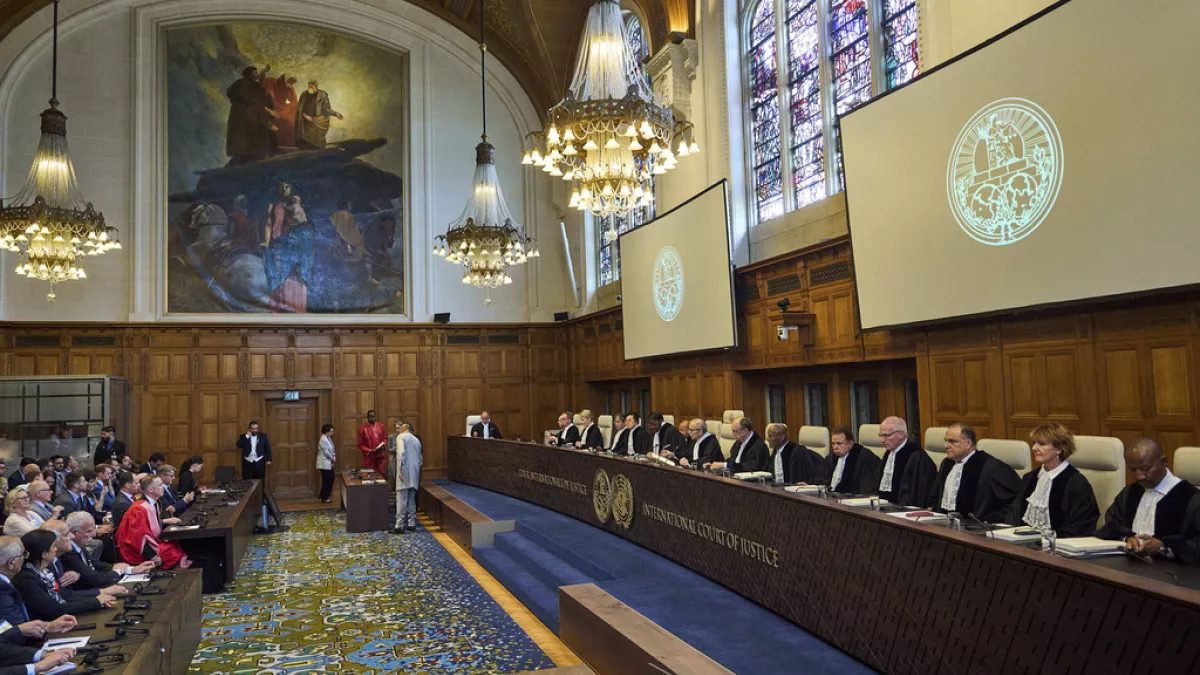
In a landmark decision on Friday, the International Court of Justice (ICJ), also known as the World Court, declared that Israel’s occupation of Palestinian territories and the settlements established there are illegal, urging their withdrawal at the earliest opportunity. This advisory opinion from the United Nations’ highest court is its most definitive statement on the Israeli-Palestinian conflict to date.
The ruling, while not legally binding, holds significant weight under international law and is expected to amplify global criticism of Israel’s settlement policies. This ruling is poised to impact any future negotiations between Palestinians and Israelis regarding a peace settlement.
“Israeli settlements in the West Bank and East Jerusalem, and the regime associated with them, have been established and are being maintained in violation of international law,” ICJ President Nawaf Salam announced, reflecting the findings of the 15-judge panel. The court emphasized Israel’s obligations to pay restitution for damages and evacuate all settlers from the existing settlements.
Additionally, the ICJ opinion specified that the UN Security Council, General Assembly, and all states must not recognize the occupation as legal nor provide any support that would maintain Israel’s presence in the occupied territories.
The ruling has sparked varied reactions from both sides of the conflict. The Palestinian foreign ministry hailed the decision as “historic,” calling on states to adhere strictly to its directives. “No aid. No assistance. No complicity. No money, no arms, no trade… no actions of any kind to support Israel’s illegal occupation,” Palestinian Foreign Minister Riyad al-Maliki declared outside the court in The Hague.
Conversely, Israel’s foreign ministry dismissed the opinion as “fundamentally wrong” and biased, reiterating its stance that a political resolution can only be achieved through direct negotiations. Prime Minister Binyamin Netanyahu’s office asserted, “The Jewish nation cannot be an occupier in its own land.”
The decision also provoked a strong response from West Bank settlers and political figures. Finance Minister Bezalel Smotrich, whose party supports the settler movement, called for the formal annexation of the West Bank in defiance of the ruling. Israel Gantz, head of the Binyamin Regional Council, denounced the ICJ opinion as “contrary to the Bible, morality and international law.”
This case originated from a 2022 UN General Assembly request for a legal opinion on the matter, predating the recent conflict in Gaza. Israel, which captured the West Bank, Gaza Strip, and East Jerusalem in the 1967 Middle East war, has consistently expanded settlements in these areas, a move the international community largely views as illegal.
During the ICJ proceedings, over 50 nations presented their views, with most advocating for the occupation’s illegality and a few, including Canada and Britain, opposing the issuance of an advisory opinion. The United States, Israel’s chief ally, urged the court to refrain from any decision that could impede peace negotiations based on a two-state solution.
The ICJ’s 2004 advisory ruling had previously deemed the Israeli separation barrier around the West Bank illegal and criticized settlement activities. Israel had dismissed that ruling, and it remains to be seen how it will respond to this latest decision.
The US reaffirmed its support for a two-state solution following the ICJ ruling, despite the Israeli parliament’s recent symbolic resolution opposing the establishment of a Palestinian state. National Security Council spokesman John Kirby reiterated the US commitment to achieving a two-state solution.
Experts warn of potential repercussions for Israel following the ICJ ruling. Ziv Purer, a lecturer in international law at Bar-Ilan University, noted that the opinion could increase international pressure on Israel, potentially affecting arms trade and other international relations.
The ICJ emphasized that Israel’s occupation equates to de facto annexation, contravening international law and Palestinians’ right to self-determination. The court called for an end to Israel’s illegal presence in the territories and immediate cessation of new settlement activities.








